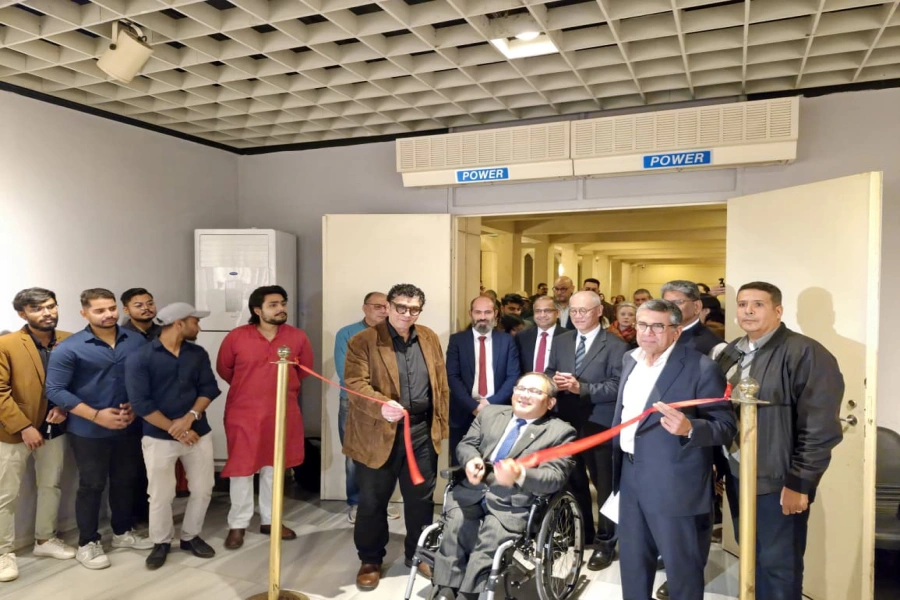DOLAKHA, Dec 18: Until a few years ago, chanting hymns in Sanskrit language was a regular activity at the Sanskrit Secondary School of Hilepani in Kalinchowk Rural Municipality-4. Since Sanskrit was a compulsory subject here, the only Sanskrit school in the district used to boast of its contribution in preserving the language.
Students from grade six to ten used to speak and write the ancient language fairly well. Many also opted to study astrology, literature, grammar, Aayurved and moral science and the medium of instruction used to be Sanskrit. Overall, the language had indeed thrived in this school as around 800 students used to be enrolled annually for such courses. However, the scenario is not the same anymore.
Even though the school seems to operate smoothly, the same spirit is nowhere to be found. The Sanskrit school no more compels its students to study Sanskrit, neither the students are seen chanting verses in Sanskrit during the morning assembly.
“There is no craze for Sanskrit. This year, nobody opted for studying this language,” said the school’s principal Ram Lal Panthi. “We have been forced to go with the choice of the parents and students. Sanskrit does not fall in their demand.”
World Sanskrit Special Honor to be conferred on Purna Chandra D...

Until two years ago, Sanskrit was a compulsory subject in the school for the students from sixth to 10th grade. And they were given optional choices for subjects like astrology, Sanskrit literature and Sanskrit grammar. But due to the loss of interest of students in Sanskrit, the school reviewed its policy.
“Since last year, Sanskrit was offered as an optional subject. And when done so, we got no student for it,” reported Panthi.
Currently, only 10th graders at the school are studying Sanskrit. Juniors have not gone for it.
“Not a single student opted for Sanskrit last year. From next year, if the situation remains the same, we won’t have any student studying Sanskrit here,” Panthi assumed.
The school was established in 1974. It was promoted to a Sanskrit secondary level school in 2002 with the initiative of the locals who even helped find teachers for the courses.
“I had joined the school as a teacher of astrology then. All the locals were so enthusiastic to help establish a Sanskrit school. People had much love for Sanskrit then,” said Panthi.
For a few years, the school was a huge attraction for those wanting to learn Sanskrit and related courses. “They would even compete with each other for excellence in what they were learning,” Panthi narrates.
According to him, the school later became a victim of the ‘fury’ of the then rebels, who took Sanskrit as their enemy. The district in-charge of the Maoists announced a clampdown on teaching Sanskrit language at the school. The school then ran classes only of other general subjects though its name was not changed.
“Teachers who were teaching Sanskrit were in dilemma. Some switched to other subjects while some other quit as there was no government quota for Sanskrit teacher,” Panthi said.
After the peace process begun, the school heaved a sigh of relief. But it could never revive the same atmosphere.
“It is very sad that the language which is being recognized by world-class colleges and universities these days is dying in its own land,” Panthi laments.



-1200x560-1771928761.webp)

































